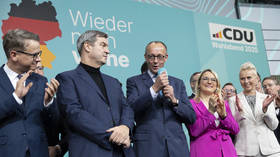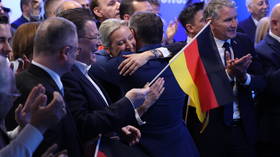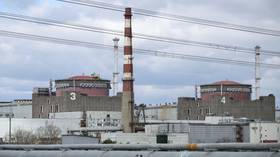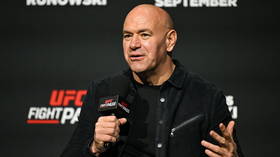Conservatives win German elections – early results

The Christian Democratic Union (CDU) and its sister party, the Christian Social Union (CSU), have won the snap elections in the German Bundestag, defeating Chancellor Olaf Scholz’s Social Democrats (SPD). The anti-immigration Alternative for Germany (AfD) party was the second strongest-performing contender and is projected to obtain more seats in the federal parliament than at any time in its history.
According to preliminary results released by Germany’s top electoral body on Monday, the CDU and CSU together received 28.6% of the votes, which means that CDU leader Friedrich Merz will likely become the next chancellor.
The AfD has received 20.8% of the votes, while the SPD placed third with 16.4% and the Greens came in fourth with 11.6%.
The early election was called last year after the collapse of the ruling ‘traffic light’ coalition made up of the SPD, the Greens, and the pro-business Free Democratic Party (FDP). FDP leader Christian Lindner pulled his support due to disagreements over the budget. His party received only 4.3% of the votes, prompting Lindner to announce his retirement from active politics.
The AfD performed the strongest in the eastern part of the country, winning elections in Saxony, Saxony-Anhalt, Thuringia, Brandenburg, and Mecklenburg-Western Pomerania. Despite becoming the second-most popular political force across the country, it will be hard for the AfD to enter a government coalition because other major parties consider its policies “extremist” and have ruled out any partnership.
In a post on X on Sunday night, Merz promised to “strive to form a government that would represent the entire German population and would solve the problems of our country.” He expressed hope that Germany will have a new government by Easter.
AfD co-leader and candidate for chancellor, Alice Weidel, has thanked the voters. “The AfD was able to double its result. The incredible success makes it clear: citizens want political change,” she wrote on X.














